




I hope that you and yours are well and looking forward to the Fall (and football) season with friends and family. I am proud to report that Michigan Pharmacology has had another impressive year! I am excited to share our accomplishments with you. We look forward to continuing our momentum and world-class scientific impact in 2024.
Some of our highlights include:
• According to the final NIH Rankings for FY22, the Department of Pharmacology ranked 8th amongst US Departments of Pharmacology.
• We resumed our overnight Departmental retreat events in Fall of 2022. Dr. Shaomeng Wang was our keynote speaker.
• We hosted the annual Alumni Steering Committee weekend in October 2022, capped off by a football win over MSU. Dr. Ezra Lowe, graduate of the Osawa Lab, received the 2022 Outstanding Alumnus Award.

• We held the inaugural Shaomeng Wang and Ju-Yun Li Lecture in April 2022, presented by Nobel Laureate, Dr. William Kaelin.
• We held the 2nd Annual Pharmacology in Color Symposium (in-person!) on June 9th, 2023.
• The NIH-funded Pharmacological Sciences Training Program T32 continues to train 12 pre-doctoral fellows each year.
• Our two NIH U grants, with Michigan Pharmacology faculty members as principal investigators, are going strong.
• We established three new Pfizer-Upjohn Research Professorships in Pharmacology. Two of these professorships will be targeted toward Early Career Faculty.
• We recruited two new graduate student cohorts for Fall 2023: 5 Ph.D. students and 6 M.S. students.
• We welcomed two outstanding new faculty members to our Department:
Dr. Michelle Hastings joined our faculty in Spring 2023 as Professor of Pharmacology and the inaugural holder of the Pfizer Upjohn Research Professorship in Pharmacology. She also serves as Director of the new M-RNA Therapeutics program within the University of Michigan Biosciences Initiative Center for RNA Biomedicine.
Dr. David Lorberbaum joined our faculty in Spring 2023 as Assistant Professor of Pharmacology with membership in the Elizabeth Weiser Caswell Diabetes Institute.
• Dr. Paula Goforth, previously a member of our Research Faculty, was appointed in Summer 2023 as Assistant Professor of Pharmacology on the tenure track, with membership in the Elizabeth Weiser Caswell Diabetes Institute.
• Finally, we look forward to welcoming Dr. Sonya Wolf-Fortune to the Department as Assistant Professor of Pharmacology with membership in the Elizabeth Weiser Caswell Diabetes Institute in July 2024.
As we again take stock of the things we value, I ask you to reflect on the impact that your University of Michigan appointment, education, or training has had on your life and career. Please consider making or renewing a tax-deductible gift to our Pharmacology Fellowship Fund to help us continue our mission to provide national leadership in pharmacology research and training.
• The Pharmacology Fellowships Fund: Our goal is to endow doctoral education in pharmacology by providing tuition and stipend support to all Ph.D. students in our department who are not awarded a training grant slot or an individual fellowship following their first year of Program in Biomedical Sciences (PIBS) support, or who need an additional year of support as senior students following training grant support. This funding mechanism will give students the freedom to work in any lab in the department that interests them, instead of being limited to only labs with sufficient funding and will be a particularly important factor in the success of our young faculty who are working toward promotion and tenure.
Thank you for your continuous support of Michigan Pharmacology. I love hearing from our alumni, and I encourage you to share your ideas with me as we continue to move our Department forward. Go Blue!
With warmest regards and best wishes,
 Lori L. Isom, Ph.D.
Maurice H. Seevers Professor and Chair of Pharmacology
Lori L. Isom, Ph.D.
Maurice H. Seevers Professor and Chair of Pharmacology

“Michigan Pharmacology continues to promote a diverse, equitable, and inclusive culture: To create a climate that is safe, diverse, and inclusive – a scientific home where individuals from all backgrounds feel valued, welcomed, and appreciated. To be a place where faculty, staff, and trainees enjoy working, learning, and growing together. To be a place where people know that their voices are heard. To be a place that our alumni are proud to call ‘home’.”
- Dr. Lori Isom
Alexander Vizurraga was the Highlighted Trainee Author for the June 2023 issue of Molecular Pharmacology
Alexander Vizurraga (Tall Lab) was the Highlighted Trainee Author for the June 2023 issue of Molecular Pharmacology. Dr. Vizurraga recently received his PhD in Cellular and Molecular Biology at the University of Michigan under the mentorship of Dr. Gregory Tall.

Loyda Morales Rodriquez selected to receive the Susan Lipschutz Award
The Department of Pharmacology’s recent graduate, Loyda Morales Rodriquez, was selected by Rackham Graduate School to be the Susan Lipschutz Award recipient.
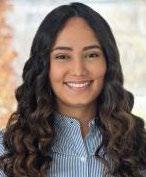
Dr. Susan S. Lipschutz was a distinguished member of the University of Michigan community. She earned a Ph.D. in philosophy from U-M in 1969. As senior associate dean of the Rackham Graduate School and associate provost in the Office of Academic Affairs, Dr. Lipschutz worked diligently to improve graduate education by creating a program that built a sense of community among faculty and graduate students. After her untimely death in 1997, her friends and family created the Lipschutz Fund to honor her memory and to support graduate students in perpetuity.
The Susan Lipschutz Award recognizes Rackham students who have demonstrated exceptional scholarly achievement, and a lively interest in promoting the success of women in the academic community.
Ian Levine became 100th MS graduate to earn a Pharmacology degree

This August, the Department of Pharmacology graduated 11 MS trainees from our program, pushing the total number of MS trainees that have graduated from the Pharmacology program over 100! Based upon when each student applied to graduate, Ian Levine became our 100th MS graduate to earn his Pharmacology degree.
Congratulations to all of our graduates!
Livia Stanger invited into The Honor Society of Phi Kappa Phi

Livia Stanger, Pharmacology PhD Student in the Holinstat Lab, has been invited into The Honor Society of Phi Kappa Phi. This is the nation’s oldest, most selective, and most prestigious all-discipline honor society. Standards for the invitation to Phi Kappa Phi are extremely high. Membership is by invitation only to the top 7.5 percent of second-term juniors and the top 10 percent of seniors and graduate students on the Ann Arbor campus. Livia recently published a first-author manuscript in the journal Blood, describing a new drug developed by the Holinstat lab.
Read the full paper here
Congratulations to our newly minted Ph.D’s who successfully defended their dissertations in 2023


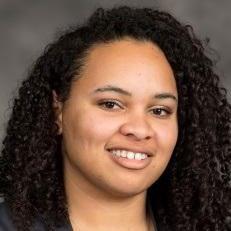

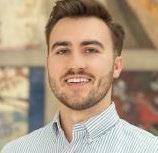
Gissel Sanchez
(Advisors: Emily Jutkiewicz and Alan Smrcka)
“Biasing of Gβγ-signaling with small molecules as a novel therapeutic approach to improve opioid-mediated antinociception.”
Loyda Morales-Rodriguez (Advisor: Manoj Puthenveedu)
“Location-Biased Signaling of Proton-Sensing Receptor GPR65 Within the Endocytic Pathway”
Nichelle Jackson
(Advisor: Kevin Jones)
“Biophysical role of the NMDAR transmembrane domain in gating and channel block”
Wenhui Wei
(Advisor: Alan Smrcka)
“Compartmentalized Phospholipase C Signaling as a Hub That Mediates Beta-adrenergic Receptor Crosstalk in Cardiac Hypertrophy”
Tyler Lefevre (Smrcka Lab)
“Molecular Mechanisms of Gαi Signaling Selectivity”


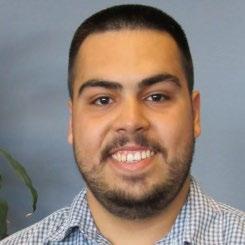

Chiamaka Ukachukwu
(Advisor: David Jones)
“The hERG1 PAS Domain: An Anti-arrhythmic Drug Target and Master Regulator of IKr”
Kelsey Kochan
(Advisor: John Traynor)
“Characterization of Positive Allosteric Modulators of the Mu Opioid Receptor”
Jean Carlos Rodriguez Diaz (K Jones Lab)
“Role of the N-Methyl-D-Aspartate Receptor in Synchronous Neuronal Network Activity”
Alexander Vizurraga (Greg Tall Lab)
“Probing Adhesion GPCR Mechanisms via High Throughput Screening for Novel GPR56 Modulatory Compounds”
Excellence in Entrepreneurship
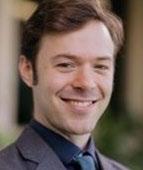
Robert Goldsmith, Ph.D. student in the Brody lab, received the 2023 OGPS Graduate Student Award for Excellence in Entrepreneurship. Robert serves as the Director of Professional Development for miLEAD Consulting, a graduate student-led consulting organization. He has helped organize the Midwest Healthcare Case Competition, and received an Innovation Fellowship to work with U-M’s Fast Forward Medical Innovation Aiken’s Academy on commercialization efforts.
James Teuber won best oral presentation at the Annual Midwest Pharmacology Research Colloquium
James Teuber, Ph.D. Candidate in the Brody lab, won the 2023 Duncan A. McCarthy, Jr. Memorial Award for Outstanding Oral Presentation at the Annual Midwest Pharmacology Research Colloquium, which was hosted this year by our colleagues in the Department of Pharmacology & Toxicology at Michigan State University.
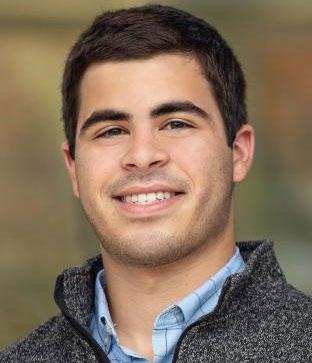
Catherine Demery accepted into the Chemistry Biology Interface Training Program

Catherine Demery, Pharmacology Ph.D. Student in the Traynor Lab, was accepted into the Chemistry Biology Interface (CBI) Training Program in the College of LSA. This training program is a unique multidisciplinary Ph.D. training program that focuses on the fundamental underlying chemical principles that govern all biological processes. Read more about the program here
Dr. Julie Finnell, Postdoctoral Fellow in the Ferrario Lab, accepted a faculty position in Pharmacology and Toxicology housed in the Jacobs School of Medicine at the University of Buffalo

During her time in the Pharmacology department, Julie’s research was broadly focused on understanding how reward centers of the brain drive feeding and how these centers and associated behaviors are changed after exposure to high fat or high sugar diets. Julie had a variety of projects including assessing effects of intra-nucleus accumbens insulin on the motivation for food, determining whether palatable junk food diets alter stress susceptibility, and assessing how sex contributes to high fat diet-induced inflammation in the nucleus accumbens and plasma. One of her most laborious tasks was to develop, characterize, and apply a novel model of behavioral economics in which rats respond for liquid reinforcers like sucrose. She was highly productive and left the university with five first author manuscripts, one review, and several poster and oral presentations at local, national, and international conferences.
In her new faculty role at the Jacobs School of Medicine at the University of Buffalo, she will be able to foster her passion and interest for teaching at the undergraduate, graduate, and professional levels. While teaching will be her primary focus, she is not entirely stepping away from the bench. Rather, she will continue conducting research in collaboration with a variety of colleagues at UB as it is her hope to continue to be an active member in the research community.
Congratulations to the new incoming PSTP T32 Trainee Cohort!
2023 PSTP Cohort

Kalynn Bird Pharmacology

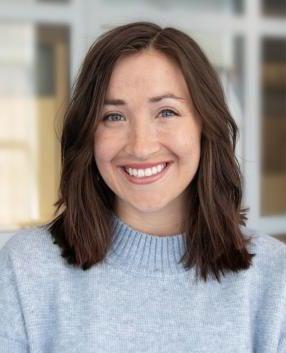
Boesger MedChem
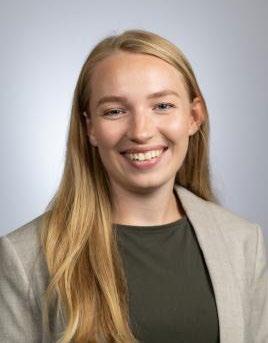
Vishakha Choudhary BiolgChem Kaitlyn Digsby Pharmacology

Catalano Pharm Sci
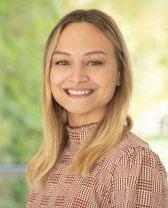
Krystal Santiago-Colon Pharmacology
Ashley Mello recognized by the American Association of Immunologists (AAI) for her research excellence
Ashley Mello (Lee Lab) received both the 2023 AAI Trainee Abstract Award and the 2023 AAI Minority Scientist Award. Her abstract was selected for oral presentation at the AAI annual meeting.

Grad Student and Postdoc Training Grants
AHA fellowship – Livia Stanger (Holinstat Lab)
CBI TG – Catherine Demery (Traynor Lab)
CMB TG – Grace Aleck (Courtney Lab)
F31 – Ian Chronis (Puthenveedu Lab), Sean Hannifin (Lee Lab), Joseph Loomis (Smrcka Lab), Ashley Mello (Lee Lab), Tenzin Ngodup (Lee Lab), Lauren Rysztak (Jutkiewicz Lab), James Teuber (Brody Lab), and Juan Valentin-Goyco (Auchus Lab)
Lucchesi fellowship – Tyler Bernadyn (Tall Lab)
MICHR TG – Krista Goerger (Holinstat Lab)
NIDA TG – Farzanna Mohamed (Jutkiewicz Lab)
NSF – Nathalie Momplaisir (Smrcka Lab)
PhRMA fellowship – Claire Shudde (Courtney Lab)
PSTP TG – Kalynn Bird (Jenkins Lab), Kaitlyn Digsby (Miller Lab), Behirda Karaj (Brenner Lab), Cristian Martinez-Ramos (Osawa Lab), and Krystal Santiago Colon (Mattis Lab)
RMF – Anthony Garcia (Osawa Lab)
Rogel TrEC fellowship – Monica Chanda (Courtney Lab)
AHA fellowship – Aditya Kumar (Puthenveedu Lab)
CVC TG –Adriana Yamaguchi (Holinstat Lab)
Chiamaka Ukachukwu awarded Rackham Graduate Student Research Grant
Chiamaka (Chi-Chi)
Ukachukwu, Pharmacology graduate student (Jones Lab), was awarded a Rackham Graduate Student Research Grant. The grant is designed to support Rackham graduate students who need assistance to carry out research that advances their progress toward their degree.

New book from Dr. Les Satin
Dr. Les Satin, Joanne I Moore Research Professor of Pharmacology, Professor of Pharmacology, and Professor of Internal Medicine, had a book published by IOP Press. Dr. Satin is an editor (and series chair) for the book “Calcium Signals: From single molecules to physiology”.
More info can be found here
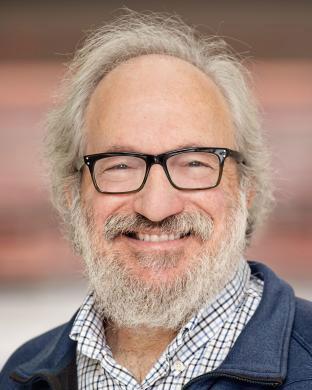
Congratulations to the following faculty who have received promotions (effective September 1, 2023). These were approved by the University of Michigan Board of Regents on May 18:
Dr. Michael Holinstat: Professor of Pharmacology with tenure, Professor of Internal Medicine without tenure, and Professor of Surgery without tenure.

Dr. Kyoung Lee received $1.4M grant from NCI to study the role of low oxygen supply in pancreatic cancer
Dr. Kyoung Lee, Assistant Professor of Pharmacology, received a $1.4M grant from NCI to study the role of low oxygen supply in pancreatic cancer.
Read more about the grant here.

Heather O’Malley elected to SACUA in tie-breaker runoff vote
Heather O’Malley, Assistant Research Scientist in the Department of Pharmacology, was the third faculty member elected this spring to the Senate Advisory Committee on University Affairs (SACUA).
Read the full article here

Dr. Manoj Puthenveedu: Professor of Pharmacology with tenure.
Dr. Peter Scott: Professor of Radiology with tenure and Professor of Pharmacology without tenure.
Dr. Roberto Ramos-Mondragon: Research Assistant Professor of Pharmacology.



Dr. Andrew Alt: Associate Research Scientist of Pharmacology.
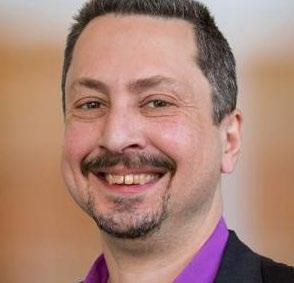
Dr. Paula Goforth: Assistant Professor of Pharmacology on the tenure track.

Dr. Carrie Ferrario received 2023 John J. Abel Award in Pharmacology
Dr. Carrie R Ferrario received the 2023 John J. Abel Award in Pharmacology. The Abel Award, named after the founder of ASPET, was established to stimulate fundamental research in pharmacology and experimental therapeutics by young investigators.
Dr. Ferrario received this award in recognition of her groundbreaking studies on the neural mechanisms underlying drug addiction and obesity.
Dr. Ferrario is an Associate Professor of Pharmacology at the University of Michigan (UM). She examines the neurobiological mechanisms of food craving and how these processes are influenced by individual susceptibility to obesity. Her studies address neurobehavioral intersections between over-consumption of food and addictive drugs like cocaine. She has made seminal contributions to the field, including identifying phenotypic behavioral and neural differences in brain reward centers in obesity-prone vs obesity-resistant populations. Dr. Ferrario received her PhD in Neuroscience from UM, training with Dr. Terry Robinson. She conducted postdoctoral research with Drs. Marina Wolf, Margaret Gnegy and Les Satin examining addiction, glutamatergic plasticity and the role of glutamate receptors in traumatic brain injury. Her scientific contributions are acknowledged by receipt of a NARSAD Young Investigator Award, an Early Career Independent Investigator Award from ASPET’s Division for Neuropharmacology and the Henry Russel Award from UM, the highest university honor awarded to early career faculty. Dr. Ferrario has been a member of ASPET since 2013.

The award was presented at the Awards Lunch on May 21, 2023 during the ASPET 2023 Annual Meeting in St. Louis. Additionally, Dr. Ferrario was invited to give a lecture on her work as part of the new online VIP Award Lecture Series in conjunction with the annual meeting.
Dr. Rheaclare Fraser-Spears received 2023 ASPET Pharmacology Educator’s Award
Congratulations to University of Michigan Pharmacology alumna
Dr. Rheaclare Fraser-Spears for her receipt of the 2023 ASPET Pharmacology Educator’s Award!
The primary goal of this award is to promote participation in the ASPET Annual Meeting by pharmacology educators and to foster career development in pharmacology education.

Dr. Yoshihiro Morishima received “Best Abstract” Award
Dr. Yoshihiro Morishima, Associate Research Scientist in the Department of Pharmacology, received “Best Abstract” award at the Research Track Faculty Symposium for his abstract entitled “Dynamic Cycling with a Unique Hsp90/ Hsp70-Dependent Chaperone Machinery and GAPDH Is Needed for Heme Insertion and Activation of Neuronal NO Synthase”.

Dr John Traynor is one of 17 U-M faculty members named 2022 AAAS Fellows.
The American Association for the Advancement of Science elected 17 University of Michigan faculty and staff members as 2022 Fellows.
AAAS, which is the world’s largest general scientific society and publisher of the Science family of journals, announced that 506 scientists, engineers and innovators have been chosen for their scientifically and socially distinguished achievements.

“AAAS is proud to elevate these standout individuals and recognize the many ways in which they’ve advanced scientific excellence, tackled complex societal challenges and pushed boundaries that will reap benefits for years to come,” said Sudip Parikh, AAAS chief executive officer and executive publisher of the Science family of journals.
John Traynor, the Edward F. Domino Research Professor of Pharmacology and professor of medicinal chemistry, for outstanding contributions to understanding opiate receptor structure and function, opiate pharmacology and drug discovery, and mechanism of drug addiction, and for his exceptional administration in academe and professional societies.
Read more in the Michigan News Article here
Dr. Julie Finnell and Dr. Natalie Tronson make news with recent article


Dr. Julie Finnell, Postdoctoral Fellow in the Ferrario Lab, recently collaborated with Dr. Natalie Tronson, Associate Professor of Psychology, on a publication where sex differences were assessed in cytokine expression and cytokine networks in the hippocampus and plasma at various time points after a discrete immune stimulation. Findings from their study show that sex differences in neuroimmune responses encompass the intensity and time course of cytokine responses as well as overall cytokine network architecture. These differences are poised to influence both short and long-term consequences associated with neuroimmune activation in males and females.
This paper is currently available on bioRxiv. The article is also the subject of a recent (Jan. 25th) news article. Read the article here.
Dr. Paul Jenkins, Kumar Subramani, and Dr. Lia Min received EBS Awards for outstanding achievement in teaching and research.
Dr. Paul Jenkins, Kumar Subramani, and Dr. Lia Min received the 2022-2023 EBS Awards for outstanding achievement in teaching and research.
For more information about the EBS awards, please visit the EBS website
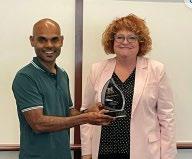

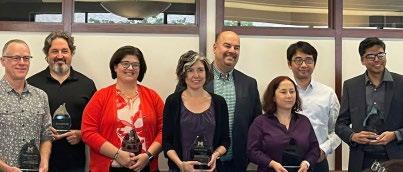

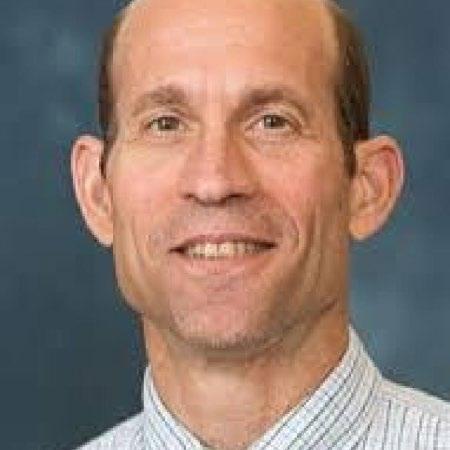
Dr. Rich Auchus, Professor of Internal Medicine, Professor of Pharmacology, and James A Shayman and Andrea S Kevrick Professor of Translational Medicine, was quoted in CNN article “Scientists unlock new secrets from a male woolly mammoth tusk”. Read the full article here.
Dr. Rich Auchus quoted in CNN articleDr. Holinstat received licensing of the compound he invented for targeting the prostacyclin receptor (CS585). Cereno Scientific has licensed the compound from the University of Michigan and continues to work with Dr. Holinstat’s lab through ORSP to develop their key pre-clinical assets.
Cereno Scientific (XSAT: CRNO B) announced that the company has signed a license agreement for the drug candidate CS585 with the University of Michigan. The signed agreement provides Cereno the exclusive rights to CS585 for further clinical development and commercialization. Cereno also extends the preclinical collaboration agreements it has with UoM for the two programs CS585 and CS014.
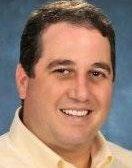
“We are pleased to enter this licensing agreement with the University of Michigan. It is a great fit with our growth strategy and provides value to our portfolio within pulmonary arterial hypertension (PAH) and thrombosis. The extension of our preclinical collaboration agreements with UoM are based on a fruitful outcome of ongoing 24-month programs signed in the spring of 2021,” says Sten R. Sörensen, CEO at Cereno.
CS585 is a potent prostacyclin receptor agonist which is highly selective for the receptor. Preclinical studies in animals with oral and intravenous doses of the drug candidate demonstrate sustained prevention of thrombosis without an increased bleeding risk. The potential of the molecule is currently being explored in several cardiovascular indications.
“The drug candidate has provided promising data, and I look forward to continue the preclinical development program for CS585, together with Cereno,” says Dr. Michael Holinstat, lead of Cereno’s development programs at University of Michigan and Director of Translational Research at Cereno.
Dr. Gregory Tall’s article was published in ScienceDirect
Dr. Gregory Tall, Associate Professor in the Department of Pharmacology, had his work published in ScienceDirect. The full article, entitled “Structures of Ric-8B in complex with Gα protein folding clients reveal isoform specificity mechanisms”, can be found here
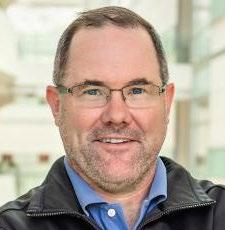
Dr. Les Satin interviewed in March 2023 Biophysical Society Bulletin
Dr. Les Satin, Joanne I Moore Research Professor of Pharmacology, Professor of Pharmacology, and Professor of Internal Medicine, was interviewed in the March 2023 version of the Biophysical Society Bulletin.

Read the full interview here (page 8).
Dr. Alan Smrcka received “Making a Difference” award
Dr. Alan Smrcka, Associate Chair for DEI, Professor of Pharmacology, Professor of Biophysics in the College of Literature, Science, and the Arts, and Benedict R Lucchesi Collegiate Professor of Cardiovascular Pharmacology, received a “Making a Difference” award for his tremendous work in bringing DEI efforts to the department and to the community.

Kassidy Jungles selected as a UROP Outstanding Research Mentor
Kassidy Jungles, Pharmacology Ph.D. student (Green Lab), was selected as an Undergraduate Research Opportunity Program (UROP) Outstanding Research Mentor.

Each year, UROP recognizes outstanding mentors who have exceeded expectations in providing opportunities and guidance to their UROP students. These exceptional mentors demonstrate an interest in the college experiences, academic goals, and career plans of their students.
Dr. Andy Alt received the OVPR Faculty Achievement Award
Dr. Andy Alt, Director of the Center for Chemical Genomics and Assistant Research Scientist in Pharmacology, received the OVPR Faculty Achievement Award. Dr. Alt’s discoveries hold significant therapeutic potential for treating opioid addiction.
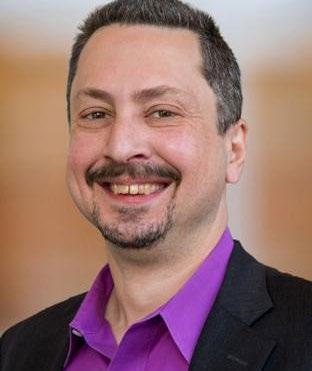
Presented by Nobel Laureate Dr. William Kaelin - April 26, 2023
On April 26th, Dr. William Kaelin, Sidney Farber Professor of Medicine at Harvard Medical School and Dana-Farber Cancer Institute Investigator at Howard Hughes Medical Institute, gave the Shaomeng Wang and Ju-Yun Li Lecture. Dr. Kaelin is the 2019 Nobel Prize winner in Physiology or Medicine. His lecture entitled “The von Hippel-Lindau Tumor Suppressor Protein: Insights into Oxygen Sensing, Cancer, and Drugging the Undruggable” was held in the Kahn Auditorium of BSRB and was greatly received by our students, faculty, and researchers.
The Shaomeng Wang and Ju-Yun Li Lecture will be held again this year on November 22, 2023 and will be presented by Dr. Alan Ashworth. Alan is the President of UCSF Helen Diller Family Comprehensive Cancer Center, Senior Vice President for Cancer Services, UCSF Health Professor of Medicine, and the E. Dixon Heise Distinguished Professor in Oncology. The lecture will be held in Med Sci II- North Lecture Hall from noon1:00pm.

The Department of Pharmacology held its annual Welcome Picnic on Sunday, August 13, 2023 at Gallup Park. Faculty, staff, and students attended and the picnic was enjoyed by all. Catering was provided by Satchel’s BBQ, cornhole and ladder golf were played, and Dr. Christine Canman presented Rongxi Zhang with an award for research in the MS program.


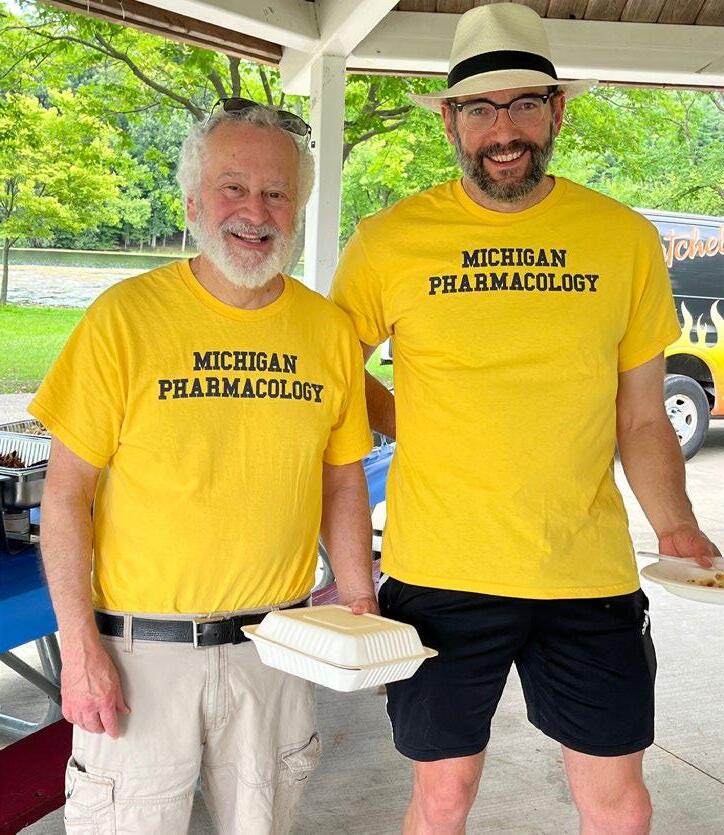
The Department of Pharmacology will hold its annual retreat at Maumee Bay Resort and Conference Center on September 18-19, 2023. Faculty, staff, and students are invited to participate in many activities, including “Strengthening our community/ building cohesive teams” training, a poster session, oral presentations, and a keynote lecture entitled “Dimensions of Consciousness” given by Dr. George Mashour, Robert B. Sweet Professor and Chair of Anesthesiology, Professor of Pharmacology, and Director of the Michigan Psychedelic Center.
Keynote speaker, Dr. George Mashour
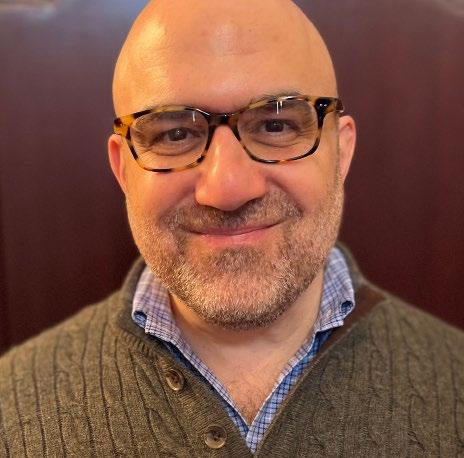

The annual Alumni Steering Committee meeting will take place this year on Friday, September 22nd. Committee members will be able to meet with departmental faculty, as well as our students and trainees. Dr. Diana Slowiejko, 2023 Outstanding Alumnus Awardee, will give a seminar at noon to the department. Diana is the Principle Med Science Director for Neuroscience and Rare Diseases at Genentech. Her seminar will be held in Med Sci II - 3697 W Lecture Hall.
To join the seminar virtually, please use the below Zoom link: https://umich.zoom.us/j/94762444068
Passcode: 212337

Dr. Diana Slowiejko

”We are committed to continuing to build a diverse and inclusive environment that fosters a sense of belonging, high quality education, and research in Pharmacology.
- Alan Smrcka Associate Chair for DEIAlumni Spotlight: Roy Hudson, Ph.D.
Did you know that Dr. Roy Hudson was the first Black student to receive a Ph.D. from the Department of Pharmacology at U-M? He graduated from Pharmacology in 1957.
“It was one of the best choices I ever made. Pharmacology was a much more versatile type of field that offered exposure in a number of directions.”
- Roy HudsonCheck out this article about his career.

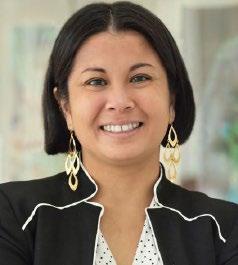
Dr. Jessica Anand, Research Assistant Professor of Pharmacology and DEI Committee Co-Chair, received a “Making a Difference” award for her tremendous work in bringing DEI efforts to the department and to the community.
Funding is available for anyone interested in organizing DEI related activities! Grants are up to $750 This year funds were used to support Wolverine Pathways, the Pharmacology in Color Symposium, and access to period products. To apply for a grant submit your idea to the Pharmacoloy DEI committee at pharmaclogydei@umich.edu
On June 9, 2023, the Department of Pharmacology at the University of Michigan hosted its Pharmacology in Color Symposium. Alumni were invited back to the department to share their career paths and experiences for the first time in person since the Covid-19 Pandemic. During the event, students gave seminars on their research and alumni gave talks on their educational paths and current careers. Breakout sessions also took place, giving students opportunities to ask direct questions to alumni and learn more about their work and the career paths they have taken. Read more about the symposium in Dr. Anwar Dunbar’s blog here
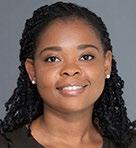

Colleen Carpenter, Ph.D., Assistant Professor in Biology at the University of Richmond, and former Ph.D. student in Dr. Margaret Gnegy’s laboratory was the keynote speaker for the symposium. Her lecture titled “Zebrafish tales: A journey of self & drug discovery” was well received by students and department faculty.
Pharm DEI committee meets monthly for planning purposes. The minutes of the meetings are posted on our website.
Email: pharmacologydei@umich.edu
We encourage feedback and ideas on how the Pharmacology Department is doing in terms of its DE&I efforts. Please use this feedback form to provide any comments or suggestions.
Welcoming our new students and faculty to UM Pharmacology!
Welcome to our 2022 Incoming Masters Students!
Welcome to our 2023 Incoming M.S. Students!

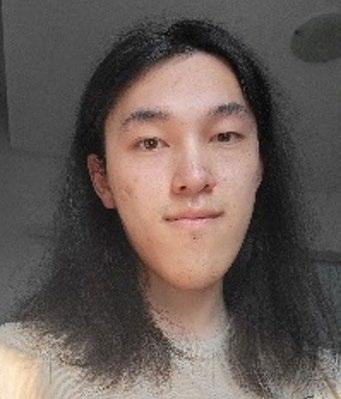




Yuchen
Welcome to our 2022 Incoming Masters Students!
Welcome to our 2023 Incoming Ph.D. Students!

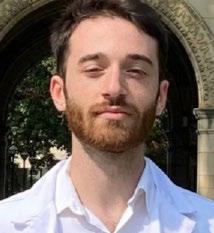
Ryan Pauly B.S. Pharmacology SUNY-Buffalo
M.S. Pharmacology SUNY-Buffalo

Alexander

Rongxi Zhang
Pharmacology

Iris Wu
Biological Sciences
M.S. Biotechnology
Johns Hopkins Tenaya Pharmaceutical
Zizhong (Joe) Zeng
Davis

Dr. Paula Goforth started her scientific career as a PhD student in the laboratory of Dr. Les Satin. She relocated with Les to U-M where, until recently, she served as a member of the research faculty. On August 1, 2023, Paula switched faculty tracks and was promoted to Assistant Professor of Pharmacology. The Goforth laboratory is interested in the cellular mechanisms used by the central nervous system to modulate energy balance and behavior. Using calcium imaging, electrophysiology and state-of-the-art neuroscience tools, her group is evaluating the specific contributions of defined neural populations to the regulation of body weight, glucose metabolism and behaviors such as feeding and anxiety. Using Cre-loxP technology to identify specific subsets of neurons in the brain, Dr. Goforth is examining the cellular mechanisms that are critical to normal physiology and how disruptions in these physiologic systems lead to or are altered by disease processes. In addition to pursuing her own research interests, Dr. Goforth has collaborated with investigators across the University of Michigan and internationally to uncover the biological mechanisms of action of neuropeptides and hormones including leptin, melanocortin, orexin and incretin hormones (eg., glucagon-like peptide). She works at the interface of whole animal physiology, cellular biology, and neuroscience in order to understand the complex traits and behaviors that may be targeted to treat a range of disease conditions. In addition, Dr. Goforth directs a neuronal physiology core facility within the new Mouse Metabolic Phenotyping Center Live, which is one of the four members of a national consortium for phenotyping rodent models of diabetes and obesity. In her free time, Paula enjoys rowing with the Ann Arbor Rowing Club (with a few other members of the Diabetes Institute). The Goforth lab is currently recruiting technicians, students, and post docs, if interested please email Paula, pgoforth@umich.edu.
Dr. Sonya Wolf-Fortune will join our faculty on July 1, 2024 as an Assistant Professor of Pharmacology. She will also have a joint appointment in the Department of Microbiology & Immunology as well as hold membership in the Caswell Diabetes Institute. She received her PhD and postdoctoral training at the University of Michigan.

Dr. Wolf-Fortune’s research in her new lab aims to understand the molecular mechanisms linking chronic skin inflammatory diseases and metabolic dysfunction development. Ultimately, this research will provide new mechanistic insights for novel therapeutic intervention. She is excited to be a part of the collaborative and welcoming environment at Michigan Pharmacology and looks forward to continuing to promote diversity in STEM education within the scientific community.
The Lorberbaum lab is focused on understanding the molecular underpinnings of pancreas development, function, and disease. My background includes training in several model organisms with the same overarching theme of exploring how cell signaling pathways and transcription factors are used throughout development and adult maintenance to promote healthy cellular function. My academic journey started at Washington University in St. Louis, my hometown, where I earned my B.A. in Biology and was a lab technician using embryos of Xenopus laevis, the African clawed frog, and murine stem cells to study gene expression. This led to earning my PhD in Cellular and Molecular Biology here at the University of Michigan with Dr. Scott Barolo where I focused on Hedgehog signaling in Drosophila melanogaster, or the common fruit fly. Wanting to pursue an academic career focused on gene regulation and signaling, I joined Dr. Lori Sussel’s group at the University of Colorado Denver in the Barbara Davis Center for Diabetes where I became fascinated by mouse and human pluripotent stem cell (hPSC) models and learned their strengths for better understanding diabetes and pancreas agenesis. I am integrating experiences from all stages of my career to study the developmental origins of pancreas disease with a focus on intersections between cell signaling pathways and transcription factors in my newly established laboratory in the Department of Pharmacology with membership in the Caswell Diabetes Institute.
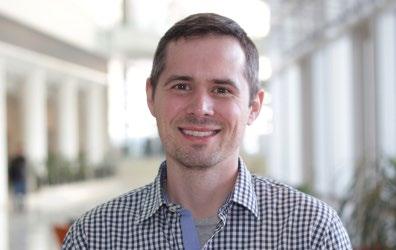
There are two major projects in the lab right now and both are related to clarifying signaling mechanisms leveraging the strengths of in vivo mouse genetics, in vitro human-derived embryonic stem cell differentiations, and ex vivo pancreatic organoid cultures. The first project will define the synergy between retinoic acid (RA) signaling and GATA transcription factors during pancreas development and disease. RA is an essential signaling molecule in many contexts including during some of the earliest stages of pancreagenesis. The GATAs, like RA, are also essential for diverse processes. In fact, point mutations in GATA6 are known to cause pancreas agenesis. These patient mutations can be modeled in hPSC derived beta-like cells, but only in limiting amounts of retinoic acid, suggesting cooperation between RA and GATA6. I have developed an in vivo murine system to model this interaction and have discovered exciting phenotypes in all pancreatic cells that could help to explain the defects observed in patients and hold clues to improving therapeutic interventions as well. The second project focuses on the origins of pancreatic islet heterogeneity. A wealth of genomic sequencing has allowed for in-depth analysis of pancreatic islets, showing there are multiple types of insulin producing beta cells that can be reliably separated based on cell surface markers. The ratio of these beta cell subtypes are disrupted in people with diabetes, suggesting that these different subtypes are important for normal, healthy beta cell function. While this kind of heterogeneity has been seen in many experiments, its origins remain unclear. This project leverages in vivo genetic tools to test the hypothesis that distinct signaling events during early pancreas specification contribute to beta cell heterogeneity. I have generated a new platform to easily isolate early pancreatic tissue for ex vivo culture, phenotypic evaluation, and genomic analysis to help define origins of heterogeneity and clarify its role in diabetes.
The lab is already growing after just a few months! We have an exceptional laboratory manager, Andrea Laurin MS, whose engineering background in Type 1 Diabetes research provides outstanding perspective and expertise on these projects. Our newest member, Daria Podgorski, is a rising junior in MCDB here at the UofM who comes with an outstanding background already with a year of UROP experience and passion for studying signaling events important for cellular function. Mentoring is just as much a passion to me as research and I am excited about how quickly the science and lab has already taken off since this summer. If you are interested in joining, feel free to contact me or learn more on my website
The Hastings lab studies basic mechanisms of gene expression and how these processes are disrupted in disease. Our goal is to better understand disease mechanisms and, through these discoveries, devise new ways to treat human disorders. We specialize in RNA-based therapeutic approaches, in particular antisense oligonucleotides (ASO), that are specifically designed to correct functional defects by targeting and modulating gene expression at the RNA level, during transcription, splicing, or translation. After 15 years at the Chicago Medical School, Rosalind Franklin University of Medicine and Science, we moved to Michigan in May 2023. Our current research projects focus on creating ASO and RNA treatments for CLN3 Batten disease, cystic fibrosis, Parkinson’s and Alzheimer’s disease and pathological inflammatory processes. The lab is deeply involved with the Center for RNA Biomedicine and M-RNA Therapeutics, a new initiative at the University tasked to translate basic research discoveries into RNA-based drugs and to identify patients and patient populations that can be served by RNA therapies. We thrive on collaborations and look forward to working with the UM community to expand RNA therapeutics to solve biological problems and find new treatment solutions for patients with unmet needs.

Breathing, like other motor behaviors, is coordinated by a central neuronal network. The Levitt lab is interested in understanding how opioids and disease affect the brainstem circuitry that controls breathing. Respiratory depression is the primary cause of death from opioid overdose, yet surprisingly little is known about the mechanisms of opioid-induced respiratory depression. We use a variety of cellular and systems level neuroscience approaches, including electrophysiology and a unique preparation with an intact respiratory network and spontaneous endogenous breathing output, to understand how opioids modulate neurons in the brainstem respiratory circuit to cause breathing disturbances. Jessica Whitaker-Fornek, a post-doc in the lab, recently published her work in the Journal of Neuroscience and Jordan Bateman, a former graduate student, recently published his findings in eLife. We had two undergraduate fellows in the lab this summer and enjoyed the beautiful Michigan summer, including a kayak trip down the Huron River. We are excited to (re)-join Pharmacology at Michigan and look forward to hosting rotation students and future collaborations with new colleagues.
Sudden death is six times more likely in the first year of life compared to any other period during childhood or adolescence, and yet data on the fundamental aspects of electrophysiology and arrhythmia in the immature human heart are limited. The long-term goal of the Jones lab is to define the mechanistic relationship between protein function and susceptibility to sudden death throughout human development and maturation. Our lab employs gene-edited and patient-derived stem cells alongside in vitro cardiac differentiation to study the roles of the KCNH2 gene in human cardiac physiology. KCNH2 encodes hERG, an ion channel that is critical to normal cardiac electrical activity. KCNH2 variants disrupt cardiac electrical signaling, cause the cardiac disorder long QT syndrome type II, and are linked with intrauterine fetal death and sudden infant death syndrome (SIDS). We recently identified a hERG subdomain, called hERGNP, that is targeted to the nuclei of immature heart cells. From the nucleus, hERGNP regulates gene expression to alter cell function during the earliest stages of human cardiac development. Our current work is focused on identifying the cellular and molecular mechanisms that regulate hERGNP activity and its relationship to sudden death in the young.
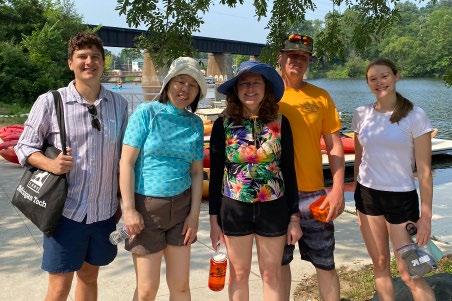
From left to right: Kai Bartol, Keiko Arakawa, Jessica Whitaker-Fornek, Jon Fornek, Carly Beeman (not pictured: Erica Levitt)

From left to right: Matthew Goodrich, Elsa Wani, Jocelyn Nichols-Lockett, Abhilasha Jain, Eric Jimenez-Vazquez, David Jones
The Tall Lab (@lab_tall) studies G protein and G protein coupled receptor signaling. We made fundamental discoveries in the field including the characterization of molecular chaperones called Ric-8 proteins that fold all G protein alpha subunits and are essential for G protein signaling. We deciphered the mechanism of action of the 33-member adhesion or Family B2 GPCR class. Our current work is to harness the power of Ric-8 proteins to boost recombinant G protein production up to 100-fold to fill a complete toolbox of purified G proteins for our enzyme analyses. Our major major effort is to expand upon our biochemical and structural demonstrations of the tethered peptide agonist mode of adhesion GPCR activation and as cellular sensors of shear force(s). We are actively pursuing a subfamily of adhesion GPCRs that are present on the surface of distinct circulating cells and platelets. Due to blood flow, these cells experience a range of shear forces and interactions with substrates including the endothelium. The lab uses transgenic mouse models, protein biochemistry and cell culture models to investigate physiological mechanisms of adhesion GPCR activation.
The Ferrario lab examines the neurobiological mechanisms of obesity and drug addiction with an emphasis on alterations in craving and excitatory transmission within the brain’s reward pathway that contribute to these diseases. The group’s studies have revealed inherent differences in food-craving and neural function in obesity susceptible vs. resistant populations, uncovered sex differences in the effects of cocaine and sugary/fatty foods on brain function and made foundational contributions to understanding how insulin influences neurotransmission. This year Dr. Ferrario was the recipient of the John J. Abel Award in Pharmacology from ASPET for her scientific contributions and lab members Dr. Julie Finnell and Dr. Tracy Fetterly and undergraduate Zander Maitland traveled to San Diego to present their work at the Annual Society for Neuroscience Meeting. Congratulations go to Dr. Finnell who has joined the faculty of the Department of Pharmacology and Toxicology at the Jacobs School of Medicine at the University of Buffalo, to Zander Maitland for being accepted into the prestigious NIH post-baccalaureate program, and to Dr. Fetterly who started a new position as an Assistant Project Scientist at UC Irvine. We welcome two new members, Dr. Lauren Raycraft and Joy SalesColquitt, as well as returning undergraduate researchers Nathan Chan, Rayan Mughal, and Finn Seibold. We’re looking forward to Amanda Catalfio’s thesis defense where she’ll present her work examining sex differences in cocaine-induced plasticity and how varying cocaine pharmacokinetics affects neurotransmission, and to continuing our collaborations with colleagues Drs. Will Birdsong, Monica Dus and Travis Brown.

Front left to right: Yukiko Maeda, Tyler Bernadyn, Charu Gupta
Back left to right: Riya Gandhi, Frank Kwarcinski, Greg Tall, Tingzhen Shen, Alex Vizurraga, Xinyi Lu

Front left to right: Jacob Ormes, Salisha Baranwal, Tracy Fetterly
Back left to right: Amanda Catalfio, Julie Finnell, Nathan Chan, Carrie Ferrario, Zander Maitland, Megan Wickens, Rita Ionides


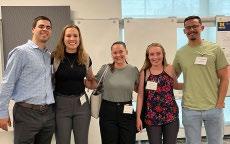
Your donations fund learning and training opportunities for our outstanding graduate students, enabling them to advance their knowledge and enhance their skills in basic science research in varied and complex areas of study.
https://victors.us/pharmacologygradfund
https://victors.us/dominoresearchcenter
For any questions, please contact Melissa Lynch (lymeliss@med.umich.edu).

DEPARTMENT OF PHARMACOLOGY
University of Michigan Medical School
2301 MSRB III
1150 W. Medical Center Dr. Ann Arbor, MI 48109-5632 USA
(734) 764-8165
https://medicine.umich.edu/dept/pharmacology
umpharmacology/
https://www.linkedin.com/ groups/5162943/profile
@UMPharmacology
2023 Pharmacology Newsletter
Editor and Content Manager: Katie Hildebrand
Executive Officers of Michigan Medicine: Marschall S. Runge, M.D., Ph.D., executive vice president for medical affairs, dean, University of Michigan Medical School, CEO, Michigan Medicine; David A. Spahlinger, M.D., president, UMHS, and executive vice dean for clinical affairs, University of Michigan Medical School; Patricia D. Hurn, Ph.D., dean, School of Nursing.
The University of Michigan, as an equal opportunity/affirmative action employer, complies with all applicable federal and state laws regarding nondiscrimination and affirmative action. The University of Michigan is committed to a policy of equal opportunity for all persons and does not discriminate on the basis of race, color, national origin, age, marital status, sex, sexual orientation, gender identity, gender expression, disability, religion, height, weight, or veteran status in employment, educational programs and activities, and admissions. Inquiries or complaints may be addressed to the Senior Director for Institutional Equity, and Title IX/Section 504/ ADA Coordinator, Office for Institutional Equity, 2072 Administrative Services Building, Ann Arbor, Michigan 48109-1432, 734-763-0235, TTY 734-647-1388, institutional.equity@umich.edu. For other University of Michigan information call 734-764-1817.
© 2023 Regents of the University of Michigan: Jordan B. Acker, Huntington Woods; Michael J. Behm, Grand Blanc; Mark J. Bernstein, Ann Arbor; Paul W. Brown, Ann Arbor; Sarah Hubbard, Okemos; Denise Ilitch, Bingham Farms; Ron Weiser, Ann Arbor; Katherine E. White, Ann Arbor; Santa J. Ono (ex officio).